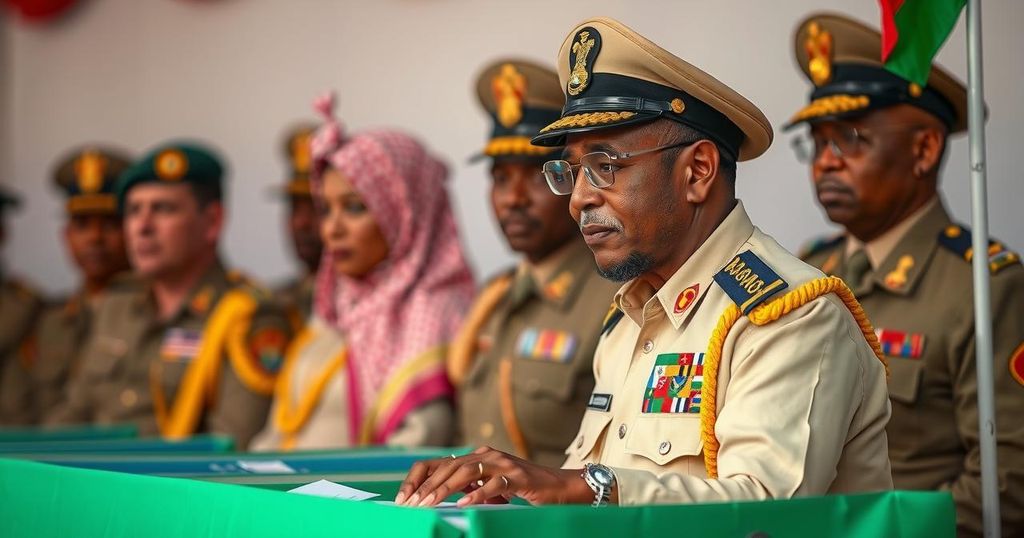Chad Votes in General Election Amid Opposition Boycott and Low Turnout

Chad held a general election amid military rule, with low voter turnout expected following an opposition-led boycott. Preliminary data suggest a turnout of only 38 percent. President Deby called for mass participation, while citizens expressed skepticism about the electoral process, fearing predetermined outcomes. The elections are framed by the government as a step towards democracy after years of autocracy but are accompanied by serious allegations of fraud and dissatisfaction among voters.
Chad has conducted a general election following three years of military governance. The government has characterized this event as a pivotal move towards reinstating civilian authority. However, voter turnout is anticipated to be low due to a boycott called by opposition parties. Preliminary reports indicate a mere 38 percent turnout, as many citizens opted to abstain from the vote, claiming the outcomes had already been predetermined. Opposition leader Succes Masra asserted that his supporters primarily chose to stay home in accordance with the boycott.
Despite the boycott, President Mahamat Idriss Deby Itno urged citizens to participate actively in the electoral process. He shared photographs of himself casting his vote on social media, labeling the day as “historic.” Skepticism permeates the atmosphere with citizens like Herve Natouingan expressing disillusionment over the lack of genuine electoral processes in Chad, while others, like Patrice Lumumba Deoumoundou, voted in hope for widespread reforms.
Military personnel and nomadic individuals were permitted to vote a day earlier for logistical reasons, with the election agency reporting higher turnout among these groups. The significance of local issues was underlined, particularly concerning the nomads’ living conditions exacerbated by climate change. The polls are under the observation of international monitors to ensure transparency amidst allegations of electoral fraud and past violence.
Chad has portrayed these elections as crucial in its transition to democracy after the lengthy dictatorship of former President Idriss Déby. These changes unfold in a context marked by security challenges from armed groups and shifting political dynamics with external powers. The elections, marred by claims of preordained results and a populace divided in response, reflect the complexities amidst Chad’s ongoing quest for democratic governance.
Chad’s political landscape has undergone significant upheaval since Mahamat Idriss Deby Itno ascended to power in 2021, following the death of his predecessor and father. This event marked the beginning of military rule, prompting calls for democratic reforms from both the populace and international observers. The current elections are seen as a critical step towards restoring civilian governance, with the government claiming it represents a transition to democracy. However, skepticism remains firmly rooted among citizens, many of whom view the electoral process as flawed and lacking integrity, primarily due to opposition calls for boycotts amid accusations of prearranged outcomes.
In conclusion, Chad’s general election reflects the fraught struggle between military authority and the aspiration for democratic governance. Low voter turnout, exacerbated by opposition boycotts, casts doubt on the legitimacy of this electoral process. President Mahamat Idriss Deby’s attempts to galvanize participation encounter significant public skepticism. As the nation navigates these tensions, the future of Chad’s democracy remains uncertain against a backdrop of socio-political challenges and regional instability.
Original Source: www.kpvi.com







